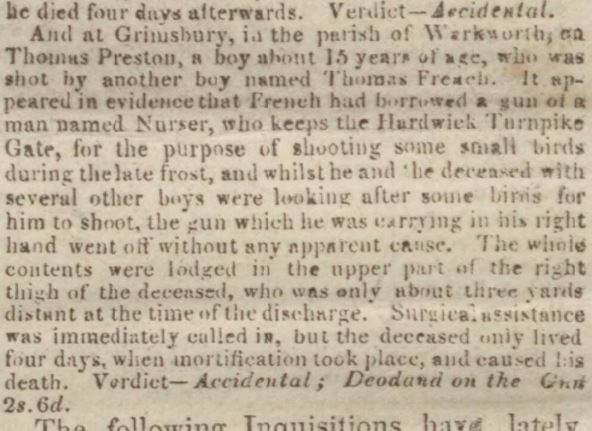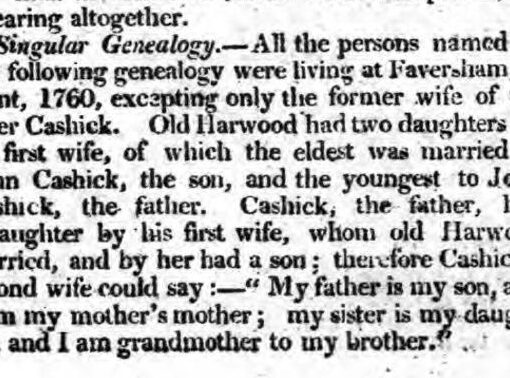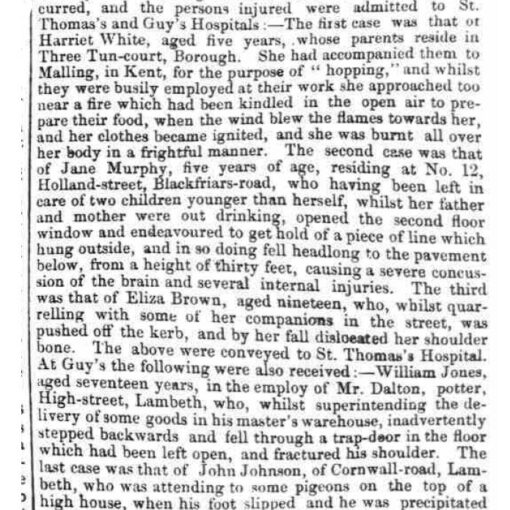Inquisitions, although a bit gruesome and quite depressing at times, were widely reported in local and national newspapers much as they are today. These reports give us an insight into an aspect of life and the manner in which these proceedings were conducted.

The example here is taken from February the 2nd 1827 on a young lad from the parish of Warkworth, in Northamptonshire who was accidentally shot in the thigh and consequently died a few days later as a result of his wounds. It also mentions a law that was finally abolished in 1846.
“… And at Grimsbury, in the parish of Warkworth, on Thomas Preston, a boy about 15 years of age, who was shot by another boy named Thomas French. It appeared in evidence that French had borrowed a gun of a man named Nurser, who keeps the Hardwick Turnpike Gate, for the purpose of shooting some small birds during the late frost, and while he and the deceased with several other boys were looking after some birds for him to shoot, the gun which he was carrying in his right hand went off without any apparent cause. The whole contents were lodged in the upper part of the right thigh of the deceased, who was only about 3 yards distant at the time of the discharge. Surgical assistance was immediately called in, but the deceased only lived four days, when mortification took place, and caused his death.
Verdict – accidental; *Deodand on the (G**) 2s, 6d”.
* The Deodand is a thing forfeited or given to God, in the context of law, an object or instrument which becomes forfeit because it has caused a person’s death. The occasions when people fell out of boats, of horses, down maypoles, into boiling steeples and under carts would be dealt by the deodand. Under this law, a chattel (i.e. some personal property, such as a animal i.e.horse or object i.e.hay sack) was considered a deodand whenever a coroner’s jury decided that it had caused the accidental death of a human being, it or its value would be forfeited as deodand. In theory, deodands were forfeit to the crown, which was supposed to sell the chattel and then apply the profits to some pious use. (The term deodand derives from the Latin phrase “deo dandum” which means “to be given to God.”) In reality, the juries who decided that a particular animal or object was a deodand also appraised its value and the owners were expected to pay a fine equal to the value of the deodand. If the owner could not pay the deodand, his township was held responsible. An example of deodands is the death of William Pipillinton who drowned after falling from a boat in the river Severn. The case resulted in a deodand of 12 pence.
Source:
Law Teacher
Ian Waugh
Old British News




